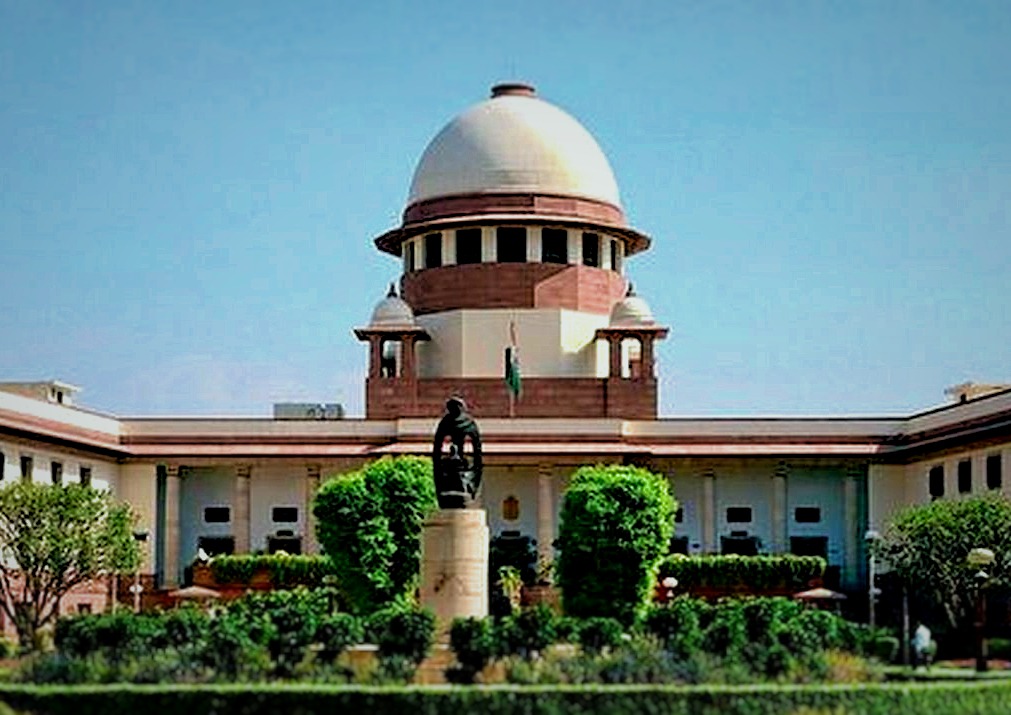Succeeding party must get costs in commercial matters, in order to avoid mindless appeals, says Apex Court

Read Judgment: UFLEX Ltd vs. Govt. of Tamil Nadu
Pankaj Bajpai
New Delhi, September 20,2021: While stating that mindless appeals should not be the rule, the Supreme Court has held that costs must follow the cause in commercial matters.
A Division Bench of Justice Sanjay Kishan Kaul and Justice Hrishikesh Roy observed that tender jurisdiction was created for scrutiny of commercial matters and, thus, where continuously parties seek to challenge award of tenders, the succeeding party must get costs and the party which loses must pay costs.
There is appreciation of the principles that in carrying on commercial litigation, parties must weigh the commercial interests, which would include the consequences of the matter not receiving favourable consideration by the Courts, added the Bench.
The background of the case was that the Tami Nadu Government decided to have holographic stickers on liquor bottles in an attempt to curb the sale of spurious liquor. Accordingly, tenders were invited and many companies submitted their bid.
However, two companies Alpha and Kumbhat challenged the process of bidding without participating in the process contending that the tender was designed in such a way that only few companies could apply.
The Madras High Court then directed the Tamil Nadu government to float a fresh tender within four months while permitting the existing successful tenderers to continue to provide the supplies under the existing terms and conditions.
This came to be challenged by the petitioner UFLEX Ltd before the Apex Court, being the successful bidder.
After listening to the contentions, the Division Bench found that the present case is not one of an inter-corporate battle or of minority shareholders claiming the rights or any debts due, where the principle of lifting the corporate veil should be applied.
The factual position is that there were three bidders and that one of them met the technical specifications but did not succeed further on financial issues and turnover under Part 4 of the NIT(Notice Inviting Tender).The same cannot be used to nullify the whole tendering process, said the Bench.
“We are concerned with sale of liquor. The objective has been set out by the State Government, i.e., use of such technology as would prevent spurious liquor from being sold. It is a well-known fact that a large revenue collection comes in Tamil Nadu through sale of liquor. It thus must be left to the State Government to see how best to maximize its revenue and what is the technology to be utilized to prevent situations like spurious liquor, which in turn would impede revenue collection, apart from causing damage to the consumers”, observed the Top Court.
Noting that the grievance was about “patented technology”, the Top Court said that at the stage when the concerned committees were still looking to the objections/suggestions of the parties, Kumbhat and Alpha rushed to the Court, even when the State Government did provide relief by issuing a corrigendum to address the issue relating to hidden text being visible only through Polaroid, as colour change background viewable with film as an identifier did not attract the rigour of this stated patented technology.
Insofar as the participating entities were concerned, the Division Bench opined that all and sundry should not be permitted to participate in matters of this nature.
In fact, in every tender there are certain qualifying parameters whether it be technology or turnover and the Court cannot sit over in judgment on what should be the turnover required for an entity to participate, added the Bench.
“The prohibition arising from only a Limited company being permitted to participate was again addressed by the corrigendum permitting LLPs to participate. If entities like Kumbhat and Alpha want to participate they must take some necessary actions. Alpha is already an LLP. Kumbhat cannot insist that it will continue to be a partnership alone and, thus, that partnerships must necessarily be allowed to participate”, observed the Bench.
The Top Court went on to observe that insofar as Kumbhat’s plea based on the Tender Act is concerned, a reading of the provisions would show that some benefit is sought to be given to MSMEs to the extent of 25% of the order based on their willingness to match the price of the lowest tender.
However, to be able to avail of that benefit, it must be an entity which is capable of bidding in terms of the tender conditions. There is no prohibition against limiting the participation to Limited companies of LLPs, added the Court.
Therefore, the Apex Court directed the respondent companies to pay a sum of Rs. 23 lakh to the appellant and Rs 7.5 lakh to the state government for the litigation expenses it had to incur.
Sign up for our weekly newsletter to stay up to date on our product, events featured blog, special offer and all of the exciting things that take place here at Legitquest.




Add a Comment